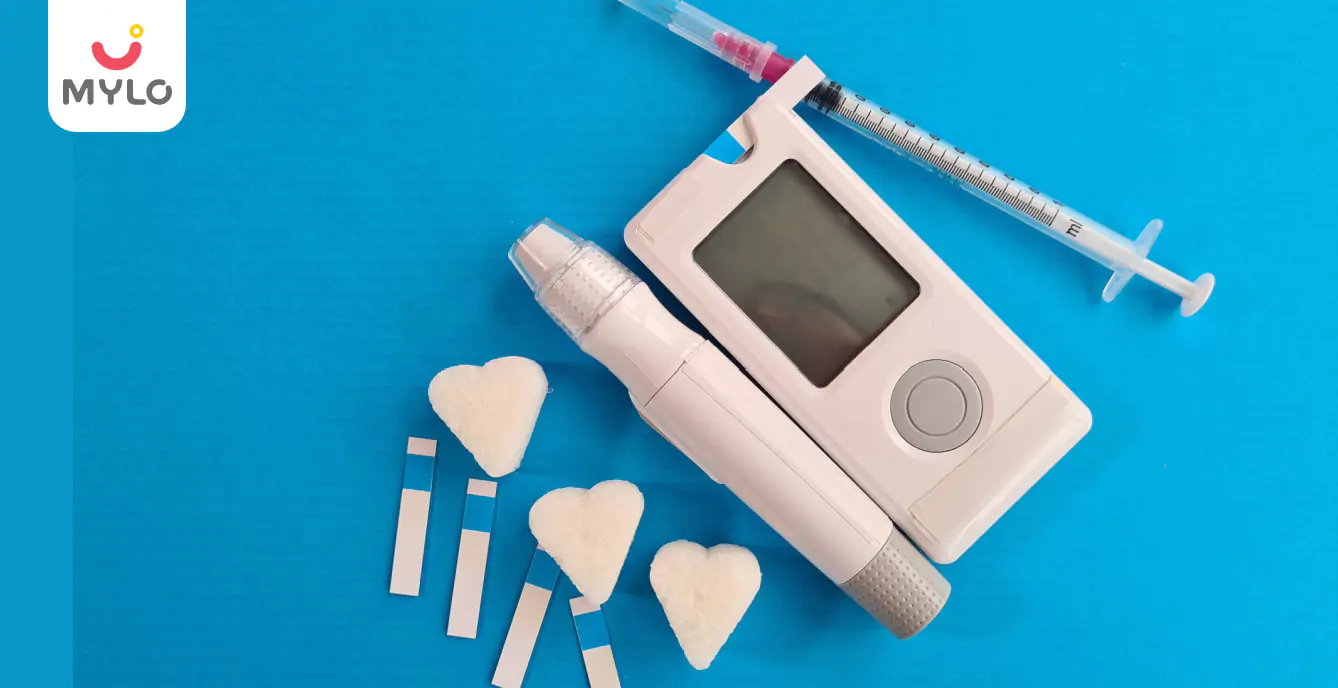Home

PCOS & PCOD

Birth Control Pills for PCOS: The Ultimate Guide to Pros, Cons & Alternatives
In this Article

PCOS & PCOD
Birth Control Pills for PCOS: The Ultimate Guide to Pros, Cons & Alternatives
Updated on 21 December 2023



Medically Reviewed by
Dr. Shruti Tanwar
C-section & gynae problems - MBBS| MS (OBS & Gynae)
View Profile

As the prevalence of PCOS continues to rise, many women are seeking answers about the impact of certain foods, supplements, and medications on their condition. Among the various treatment options available, birth control pills have emerged as a popular choice for managing PCOS symptoms.
But how effective are birth control pills for PCOS? Are there any side effects of oral contraceptive pills for PCOS? If yes, then what are their alternatives? In this article, we will address these common concerns and help women make informed decisions about their health.
What's the relationship between PCOS and birth control pills?
Polycystic ovary syndrome (PCOS) is a common hormonal disorder that affects women of reproductive age. It is characterized by the presence of cysts on the ovaries, irregular menstrual cycles, and elevated levels of male hormones.
One of the treatment options often recommended for PCOS is the use of birth control pills, also known as oral contraceptive pills. These pills contain synthetic hormones that regulate the menstrual cycle and reduce the symptoms associated with PCOS.
Birth control pills work by suppressing the production of androgens, the male hormones that are responsible for many of the symptoms of PCOS. By regulating hormone levels and preventing the formation of cysts on the ovaries, birth control pills can help restore regular menstrual cycles and reduce the severity of PCOS symptoms.
You may also like: PCOS Self Care: How to Nurture Your Body and Mind
What are the benefits of contraceptive pills for PCOS?
Let us now understand some benefits of consuming these pills for PCOS:
1. Regulated menstrual cycles
One of the primary benefits of birth control pills for PCOS treatment is their ability to regulate menstrual cycles. Women with PCOS often experience irregular or absent periods, which can make it difficult to conceive and indicate potential underlying health issues. Birth control pills help restore regular menstrual cycles, making it easier to track ovulation and plan for pregnancy if desired.
2. Reduced androgen levels
PCOS is characterized by elevated levels of androgens, which can lead to symptoms such as acne, excess hair growth, and hair loss. Birth control pills contain estrogen and progestin, which work together to suppress the production of androgens. By reducing androgen levels, birth control pills can help improve the appearance of the skin, reduce excess hair growth, and prevent further hair loss.
3. Decreased risk of ovarian cysts
Women with PCOS are more prone to developing cysts on their ovaries. These cysts can cause pain, discomfort, and fertility issues. Birth control pills help prevent the formation of ovarian cysts by regulating hormone levels and preventing the overstimulation of the ovaries. By reducing the risk of cysts, birth control pills can alleviate pain and improve overall ovarian health.
4. Improved hormonal balance
Hormonal imbalances are a hallmark of PCOS. Birth control pills contain synthetic hormones that mimic the natural hormones produced by the body. By introducing these hormones into the system, birth control pills help restore hormonal balance and alleviate symptoms such as mood swings, fatigue, and irritability.
5. Reduced risk of endometrial cancer
Women with PCOS have an increased risk of developing endometrial cancer due to irregular menstrual cycles and prolonged exposure to estrogen. Birth control pills help regulate menstrual cycles and reduce the risk of endometrial cancer by ensuring the shedding of the uterine lining at regular intervals. This can provide peace of mind for women with PCOS and their healthcare providers.
You may also like: PCOS Pain: The Ultimate Guide to Causes and Effective Management
What are the side effects of oral contraceptive pills for PCOS?
Having understood the relation between PCOS and birth control pills along with the benefits, let us now understand the side effects of birth control pills for PCOS:
1. Nausea and vomiting
Some women may experience nausea and vomiting when starting birth control pills. This side effect is usually temporary and can be minimized by taking the pills with food or at bedtime. If severe or persistent nausea occurs, it is important to consult a healthcare provider.
2. Breast tenderness
Birth control pills can cause breast tenderness or enlargement in some women. This side effect is usually mild and resolves on its own. Wearing a supportive bra and avoiding caffeine may help alleviate discomfort.
3. Irregular bleeding
While birth control pills are designed to regulate menstrual cycles, some women may experience breakthrough bleeding or spotting between periods. This is more common during the first few months of pill use and usually resolves on its own. If irregular bleeding persists or becomes heavy, it is important to seek medical advice.
4. Mood changes
Birth control pills can affect mood and cause changes in emotions. Some women may experience mood swings, irritability, or depression while taking the pills. If these symptoms become severe or interfere with daily life, it is important to discuss them with a healthcare provider.
5. Increased risk of blood clots
Like all hormonal contraceptives, birth control pills carry a small risk of blood clots. This risk is higher in women who smoke, are overweight, or have certain medical conditions. It is important to discuss individual risk factors with a healthcare provider before starting birth control pills.
You may also like: PCOS Weight Loss in 1 Month How to Shed Pounds Fast
Other Options for PCOS treatment
If you wish to avoid using birth control pills for PCOS treatment, then here are some other options you may consider:
1. Inositol
The medical treatment for PCOS often relies on hormonal birth control pills and in severe cases, laproscopic ovarian drilling. Consequently, many women find themselves looking for non-hormonal treatment for PCOS. Inositols, a type of sugar alcohol that naturally occurs in foods and can be found in two forms: myo-inositol and D-chiro-inositol, have proven beneficial for women with PCOS.
Myo-inositol has especially been found to improve insulin sensitivity, restoring menstrual regularity, reducing androgen levels and improving fertility. Women searching for non-hormonal treatment options for PCOS can also consider Mylo's chewable Myo-inositol tablets, which are fortified with Quatre Folic and Vitamin D and can help promote hormonal balance and overcome common as well as specific PCOS/PCOD challenges.
2. Anti-androgen medications
In cases where PCOS symptoms are primarily caused by elevated androgen levels, anti-androgen medications may be prescribed. These medications work by blocking the effects of androgens on the body. They can help reduce symptoms such as acne, excess hair growth, and hair loss. However, it is important to discuss the potential side effects and risks of these medications with a healthcare provider.
3. Metformin
Metformin is a medication commonly used to treat type 2 diabetes, but it can also be beneficial for women with PCOS. It works by improving insulin sensitivity and reducing androgen levels. Metformin can help regulate menstrual cycles, improve fertility, and reduce the risk of developing type 2 diabetes in women with PCOS.
4. Ovulation induction medications
For women with PCOS who are trying to conceive, ovulation induction medications may be recommended. These medications stimulate the ovaries to release eggs and increase the chances of successful ovulation. They can be used alone or in combination with other fertility treatments.
5. Surgery
In rare cases where other treatment options have been unsuccessful, surgery may be considered. Ovarian drilling is a surgical procedure that involves making small holes in the ovaries to reduce androgen production and promote ovulation. This procedure is typically reserved for women who have not responded to other therapies.
The Bottomline
Birth control pills for PCOS can help to regulate menstrual cycles, reduce androgen levels, and prevent the formation of ovarian cysts. However, contraceptive pills for PCOS are not without potential side effects, and alternative treatment options should be considered based on individual needs and preferences. It is important for women with PCOS to work closely with their healthcare providers to determine the most appropriate treatment plan for their specific circumstances.
References
1. Shah D, Patil M. (2018). National PCOS Working Group. Consensus Statement on the Use of Oral Contraceptive Pills in Polycystic Ovarian Syndrome Women in India. J Hum Reprod Sci.
2 . de Medeiros SF. (2017). Risks, benefits size and clinical implications of combined oral contraceptive use in women with polycystic ovary syndrome. Reprod Biol Endocrinol.





Medically Reviewed by
Dr. Shruti Tanwar
C-section & gynae problems - MBBS| MS (OBS & Gynae)
View Profile


Written by
Anandita Sharma
Drawing on more than a decade of expertise in administration, Anandita Sharma currently serves as a content operations e
Read MoreGet baby's diet chart, and growth tips

Related Articles
Related Questions
Hello frnds..still no pain...doctor said head fix nhi hua hai..bt vagina me pain hai aur back pain bhi... anyone having same issues??

Kon kon c chije aisi hai jo pregnancy mei gas acidity jalan karti hain... Koi btayega plz bcz mujhe aksar khane ke baad hi samagh aata hai ki is chij se gas acidity jalan ho gyi hai. Please share your knowledge

I am 13 week pregnancy. Anyone having Storione-xt tablet. It better to have morning or night ???

Hlo to be moms....i hv a query...in my 9.5 wk i feel body joint pain like in ankle, knee, wrist, shoulder, toes....pain intensity is high...i cnt sleep....what should i do pls help....cn i cosult my doc.

Influenza and boostrix injection kisiko laga hai kya 8 month pregnancy me and q lagta hai ye plz reply me

RECENTLY PUBLISHED ARTICLES
our most recent articles

PCOS & PCOD
Insulin Resistance & PCOS: A Comprehensive Guide to Causes and Management

Breathlessness
Your heart stops beating when your baby feels breathless! Here are 5 things to know about infant breathlessness.

Care for Baby
Newborn Crying: What It Means and How to Handle It?

Growth & Development
When Do Babies Make Eye Contact: Keeping an Eye on Important Milestones

Women Interests
Is your baby getting breathless frequently? Five things you must know

Birthday Parties
50 Budget-Friendly Birthday Return Gift Ideas to Wow Your Guests
- PCOS Exercise: Your Guide to Sweating Away PCOS
- PCOS and Pregnancy: How to Manage PCOS on the Path to Parenthood
- PCOS Tests: The Power of Diagnostic Tests in Your Health Journey
- Must-Read Ruskin Bond Short Stories for Little Minds
- The Top 10 Tenali Raman Stories You Must Read to Your Kids
- Ovulation Bleeding: The Ultimate Guide to Causes, Symptoms and Management
- A Guide to Recognizing Symptoms of Ovulation After HCG Injection
- Bulky Ovaries Explained: What Every Woman Should Be Aware Of
- Ovulation: The Key to Maximizing Your Chances of Conception and Pregnancy
- The Ultimate Compilation of Fancy Dress Ideas for Young Kids
- How Long Does Sperm Take to Reach the Egg?
- Pregnancy Symptoms After Ovulation Day by Day: Exploring the Daily Progression
- Signs Ovulation is Over: Your Guide to Understanding the End of Ovulation
- Top 15 Akbar and Birbal Stories for Young Kids


AWARDS AND RECOGNITION

Mylo wins Forbes D2C Disruptor award

Mylo wins The Economic Times Promising Brands 2022
AS SEEN IN

- Mylo Care: Effective and science-backed personal care and wellness solutions for a joyful you.
- Mylo Baby: Science-backed, gentle and effective personal care & hygiene range for your little one.
- Mylo Community: Trusted and empathetic community of 10mn+ parents and experts.
Product Categories
baby carrier | baby soap | baby wipes | stretch marks cream | baby cream | baby shampoo | baby massage oil | baby hair oil | stretch marks oil | baby body wash | baby powder | baby lotion | diaper rash cream | newborn diapers | teether | baby kajal | baby diapers | cloth diapers |




